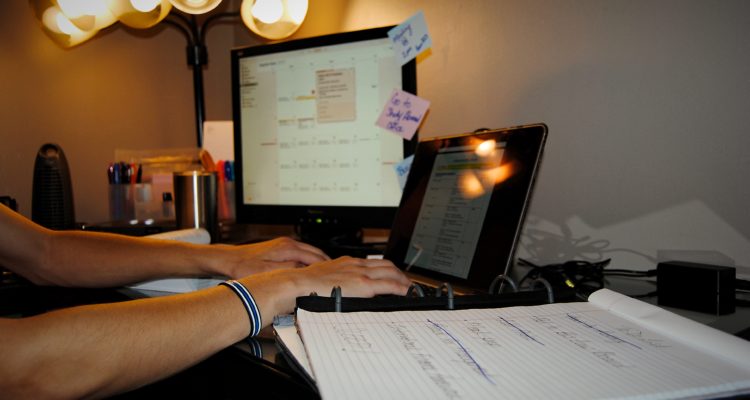By Rebecca Waskevich
It’s 7:50 a.m. and Centro 103 is empty. As students wearing pajama pants begin to shuffle in with cups of coffee, it becomes clear that no one is really awake. The question is: How can you be academically successful if you can’t keep your eyes open?
According to Robin Webb, nursing staff member, getting enough sleep isn’t the only thing a student needs to be successful. To stay organized and successful, Webb suggests using a planner and frequently checking emails.
Webb’s colleague, Julie Anderson, who was an academic adviser and supervisor of the Student Success Center, said, “Students should treat school like a 9 a.m. to 5 p.m. job, utilizing breaks in the day to study now instead of cramming later.”
Anderson suggests students take one course every semester that brings them joy. “Utilize your electives, and have a stress reliever. If you don’t it’s a recipe for disaster,” Anderson said.
Shelby Bosi, project and operations manager of the Student Success Center, suggests students utilize on-campus resources.
“We’ll see students come down here halfway through, or at the end of the semester trying to boost their grade, but where were they from day one? Tutoring isn’t just for students who are struggling. It’s for everyone,” Bosi said.
Asking for help and developing relationships with faculty are some of Bosi’s best tips for success.
“It’s only going to help you to build relationships with faculty,” Bosi said. “I think our professors are really good at remembering people, but you have to contribute to that relationship to make it a meaningful and lasting one.”
Theology and Freshman Focus professor Justin Klassen said students should schedule time to put their phones down and turn their laptops off.
“Students face a challenge now that many professors didn’t face, depending on how old they are,” Klassen said. “The availability of entertaining distractions is so much more present than when I was in college. For example I would recommend scheduling time for yourself that really is technology-free so that you do have some time everyday [where] what you have in front of you are books, paper and writing instruments.”
Having technology-free time outside of the classroom is important, but keeping distractions limited during class is vital. “Try not to be distracted, because if you break that chain of engagement, it’s hard to dip back in later,” Klassen said.
In the classroom students should think about course material as more than just information. Klassen suggests students ask themselves, “How does this change the way I think about the world?” to get the most out of coursework.
“I think students should try to pay attention to what is difficult,” Klassen said, “so not just writing down everything the professor says, but thinking about connections and relationships between ideas.”

